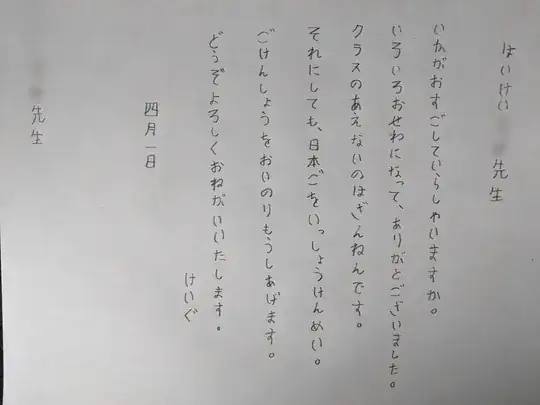The coronavirus brought an abrupt end to my Intro Japanese course, and as my Professor isn't comfortable using technology, I would like to write her a closing letter.
I'm still very new to Japanese, so I am keeping it short. I've found other answers such that I'm fairly confident about the accuracy of the rest, but this sentence, the third in the picture, still worries me as I've never used ざんねん before, nor applied any descriptor to a verb (I've never seen のは before).
Here is a picture of the whole letter draft in case context helps:
